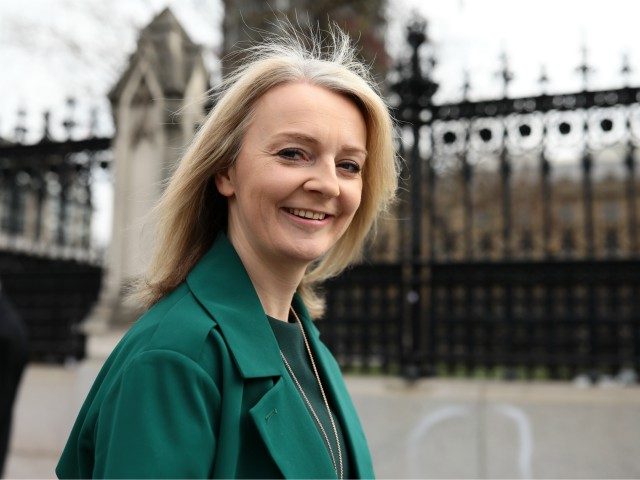International trade secretary Liz Truss has declared at the World Trade Organization that “Britain is back”, vowing to help reform the body.
The Secretary of State for International Trade was the first British minister to address the WTO’s General Council since leaving the EU, with Brexit Britain taking a seat as an independent nation in her own right at the council for the first time in early February.
Ms Truss told the WTO on Tuesday that countries must work together to reform the body, criticising unfair trading practices, protectionism, “industrial subsidies, state-owned enterprises and forced technology transfer”.
Speaking in Geneva, Switzerland, she told the other 164 ambassadors from around the world that the UK’s vision is to update the WTO rulebook to tackle unfair practices, ensure the organisation works for all nations by “seeking a fairer deal for developing countries”, and push back against protectionism.
“The UK will, like every other sovereign country, assert its ability to set its own laws and regulations in line with our WTO commitments, reflecting our own circumstances and ideas, while working tirelessly alongside other WTO Members to drive reform,” the international trade secretary said.
“We will encourage and empower small countries to play a role in shaping the global trading system, to trade their way out of poverty, and seek a fairer deal,” she said, continuing: “The more we allow people to shape their own lives, remove barriers to enterprise within and between nations, and allow human ingenuity to flourish, the more rewards we will all reap.”
Britain’s pledge to help reform the WTO is significant in terms of international relations, with reports from 2018 claiming that U.S. President Donald Trump wanted to leave the WTO over unfair practices.
Brexit Britain repositioning herself in the WTO comes as she is set to begin tough negotiations with the EU. Brussels’ red lines are insuperable barriers to a proper Brexit, with Europeans wanting the UK to stay aligned with the bloc’s rules as well as handing over continued access to British territorial fishing waters.
Mr Johnson said last month that if the EU is not willing to negotiate a fair deal, the UK will leave at the end of the transition period in December 2020 and trade with the bloc on WTO terms. Last week, the government’s trading mandate document revealed that talks could cease as early as June if, by then, UK and EU negotiators have not agreed on a “broad outline”.
Cabinet ministers have said that the UK does not need a trade deal with the EU, with Rishi Sunak — formerly the Treasure secretary, recently elevated to Chancellor of the Exchequer — saying: “We have left. There are lots of other ways that countries trade with each other.”

COMMENTS
Please let us know if you're having issues with commenting.